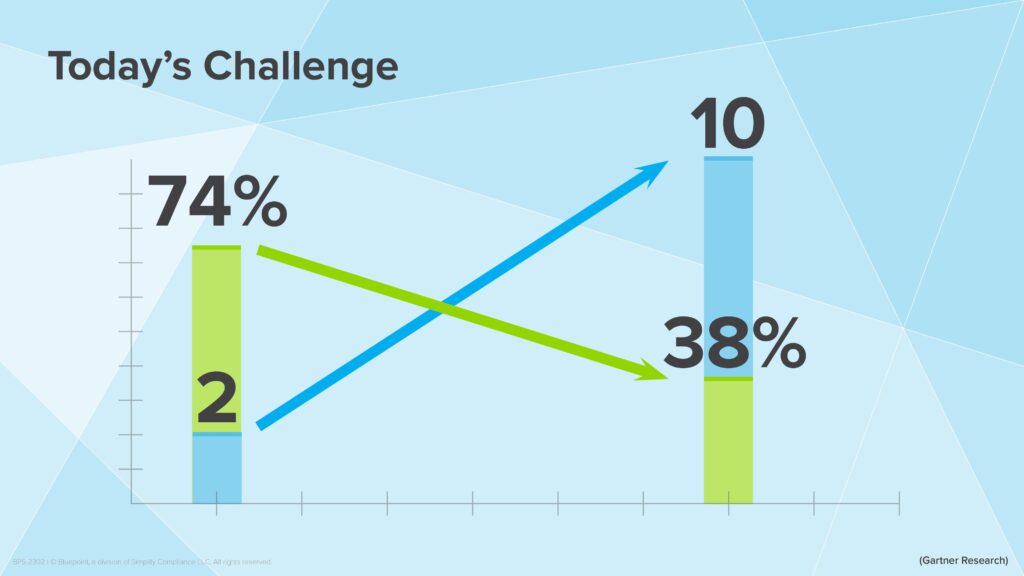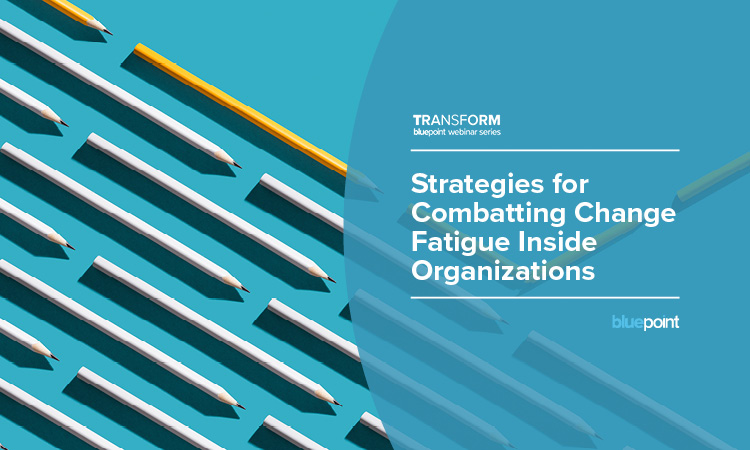Are your employees at your organization drained by nonstop change, or do they thrive on it? Organizations today face an unparalleled pace of transformation. Recent research from Gartner indicates that the average number of planned enterprise-wide changes has increased from two in 2016 to ten today. But here’s the real challenge: as change accelerates, employee willingness to support these initiatives has plummeted from 74% to a mere 38%.

This growing resistance is known as change fatigue, which is a state of exhaustion, frustration, and disengagement caused by a relentless pace of continuous change.
Employees frequently face new processes, technologies, and organizational shifts, leading to burnout and disengagement.
If your leaders oversee teams that appear resistant, overwhelmed, or disengaged, invite them to reflect on these critical questions:
- Are my team members part of the conversations, or are the changes simply “rolled out” to them?
- Does my team understand the “why” and purpose behind the change, or does it feel like change for change’s sake?
- Am I providing my team with the right tools, resources, and support to navigate this change successfully?
- Am I communicating frequently and transparently, or do my team members feel left in the dark?
The way your leaders answer these questions determines whether employees experience change as a burden or opportunity. Left unaddressed, it poses substantial challenges for leaders and HR professionals who need to navigate how to sustain employee engagement and productivity amidst constant transformation.
Change fatigue isn’t inevitable––it’s manageable with the right strategies. The following seven powerful strategies offer your leaders a structured approach to combat change fatigue.
- Boosting Confidence & Feelings of Competence: Employees who have mastered their roles may feel threatened by new changes which require new skills or different working methods. By providing training and development, your leaders can ensure their teams gain new competencies quickly, boosting confidence and streamlining transitions.
- Fostering Autonomy & Accountability: Delegating outcomes instead of individual tasks cultivates deeper engagement and accountability. When employees take ownership of their work, trust and commitment grow. However, changes that disrupt established autonomy can leave individuals feeling disempowered. Effective delegation allows team members to pursue results using their own approaches, drawing on their strengths and creativity. When people feel a sense of control and decision-making power, they naturally take more pride and responsibility in their work.
- Coaching: Leaders make the greatest impact during times of change when they take on the role of a coach. Effective coaches help team members gain a strong sense of role clarity, autonomy, and personal commitment through coaching relationships and daily coaching conversations. In these encounters, leaders should be equipped to listen, think, and speak like a coach by mastering coach-like skills:
-
- Being totally present in a conversation by listening for emotions, inconsistencies, and for what is not being said.
-
- Approaching each coaching conversation with the goal of putting their needs aside and utilizing their strengths to serve the talent.
-
- Continually thinking about how to be of service to others through feedback, insights, challenges or confronting assumptions.
- Establishing Trust: Research shows that organizations with high trust levels have a greater capacity for change. Leaders who communicate openly, act consistently, and stay true to their word create a culture of reliability. By demonstrating integrity and following through on commitments, they encourage employees to embrace change rather than resist it.
- Understanding Individual and Team Purpose: Do you know what fuels each of your team members? Effective leaders take the time to understand the unique motivations of each team member, aligning their roles with both their personal values and strengths. This deeper connection builds a sense of purpose that resonates with the entire team, ensuring lasting engagement and dedication, even through challenging transitions.
- Co-Creating a Vision: Transforming mundane tasks into meaningful missions can significantly boost morale and performance. When team members see their work contributing to a larger, noble cause, their motivation and dedication increases, leading to better outcomes and a stronger team dynamic.
- Celebrating Success: Change fatigue often stems from feeling like nothing ever settles. Challenge this by recognizing achievements along the way. Leaders can offer positive reinforcement, set short-term goals, and highlight wins to help teams track success and build confidence.
Change is inevitable, making it essential to build a strong, resilient team capable of overcoming change fatigue. By prioritizing the seven key strategies outlined above, leaders can sustain employee engagement, successfully implement new initiatives, and equip their teams to navigate challenges that arise.
If you’re interested in learning more, access our on-demand webinar, Strategies for Combating Change Fatigue Inside Organizations.
Or, for more personalized guidance, connect with one of our Strategic Learning Partners to explore ways to help your organization embrace change with confidence.
Related Resources
Subscribe to newsletter
Subscribe to our newsletter today and receive innovative, insightful and thought provoking resources (videos, webinars and articles) all effective tools for developing leadership talent.
This is a member-only resource. Contact sales at info@bluepointleadership.com for information on Corporate Membership or learn more here: Learn More
This is a member-only resource. Contact sales at info@bluepointleadership.com for more information.





